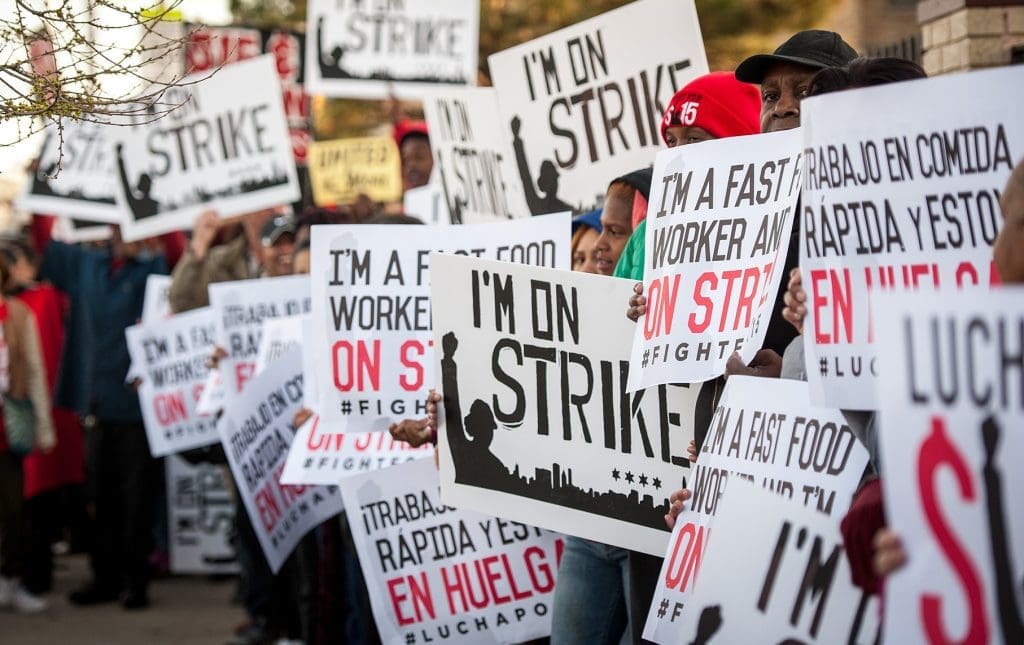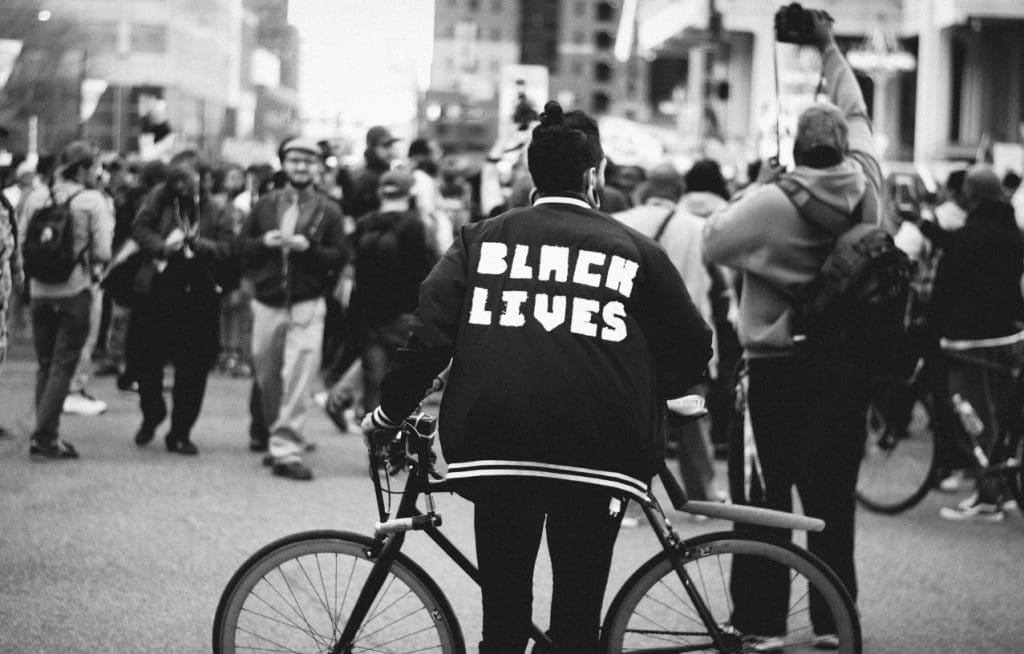Transcribed from This is Hell! Radio‘s 3 June 2006 episode and printed with permission. Archived audio of the full interview, replayed in March 2014, to be made available online eventually.

“I’m fascinated by the way the Right has appropriated the methods of the 1960s Left.”
Chuck Mertz: On the line with us right now is writer and documentary filmmaker Astra Taylor, who wrote the AlterNet column How the Right Stole the Sixties and Why We Should Get Them Back. Astra directed the 2005 documentary Žižek, on philosopher Slavoj Žižek. Astra’s first book, Shadow of the Sixties, is forthcoming from the New Press in 2007.
You come from a very different perspective than most people who report or write on the sixties. We often get an academic point of view, or that of somebody who lived through the sixties but was not as integrated into sixties culture as you were. You talk about how you were homeschooled, or “unschooled.” Why don’t you tell people a little bit about your background and how you were raised?
Astra Taylor: It’s interesting you ask—I started this project partly because I was fascinated by the fact that histories of the sixties are written primarily by baby-boomers who are now in the academy. Reading these histories, I absorbed all of this negativity about the decade and the decade’s experiments—but my own upbringing testified to the enduring qualities of that era.
I was unschooled, which was a radical anarchist strain of homeschooling that goes back to Emma Goldman but was brought into mainstream consciousness in the 1960s. And so my upbringing definitely has everything to do with my perspective. I have a sense that everything didn’t fail, everything didn’t go up in smoke. There’s something that continues and is still valid—perhaps more valid and more important than it was forty years ago.
CM: My girlfriend’s mom was a teacher in public schools for forty or fifty years, and when I’ve talked to her about people who have been homeschooled, the first thing that comes up is social problems—
AT: Everybody asks about that.
CM: Right, because you’re not raised with a classroom full of students. How—
AT: I think it’s a huge advantage. I’m very appreciative of the fact that being unschooled breaks down a lot of barriers around age. Because in school, you’re always with your peers, in your age group. In unschooling, anyone of any age can be your friend or someone you’re learning with or someone who’s teaching you. I think it opens up a lot of social possibilities.
And being socialized all the time, twenty-four hours a day, being distracted all the time—I’m not sure that’s such a good thing. Unschooling gives you the chance to learn to be alone and to explore what your interests might be; it gives you lots of time to read and think and ponder, and to learn to create art, and to entertain yourself.
CM: The other thing that I’ve always heard is that kids involved in homeschooling—or unschooling, as you’re calling it—are often “mature beyond their years.”
AT: Yeah, and I think that that’s a very positive thing. One thing about homeschooling is that often we’re pressured to really “achieve,” in order to prove the validity of homeschooling. There are always these homeschoolers or unschoolers who get into Harvard and are touted as “success stories.” But we don’t necessarily need to fall into that trap of playing up our conventional achievements. You unschool for your whole life. It’s not something you just do when you’re a kid and then stop; it’s an ethos that you carry on with you.
CM: When I was reading your work and thinking about the perspective that you’re writing from, I thought of John Walker Lind. What was your reaction to that? People will remember the context: John Walker Lind had been picked up for supposedly fighting for the Taliban in Afghanistan—
AT: Entrusted by his permissive Berkeley parents—
CM: That’s right, that’s exactly what they were saying. All of the rightwing pundits and columnists were coming out and saying this is proof that the ‘sixties way’ of rearing children just doesn’t work. What was your reaction?
AT: The fact that they glommed onto him as an example proves how twisted it is. We have an appetite for sensationalism and scandal; you would never read a memoir called “My Happy Hippie Childhood.” Memoirs that ‘sell’ are more like, “I was Raised in this Cult,” or something like that.
John Walker Lind is an example of that. He couldn’t be more of an aberration. Who actually knows how liberal his upbringing was? We don’t know about the family dynamics there. But I think this stereotyping is very interesting. That’s something I hope we talk about later: the way conservatives blame every social ill on the culture of the sixties; the permissiveness, the moral relativism. It’s to blame for John Walker Lind and for children born out of wedlock, for welfare mothers and drug addiction. Everything is to blame on the sixties.
CM: You start off your piece, “it wasn’t until I got to college that I heard that the 1960s had ‘failed’ and that all the baby-boomers went straight and sold out.”
Now, I’m like you. I didn’t hear that the sixties had ‘failed’ until I went to college, either. But I’m a bit older than you—I went away to college in 1980, that’s when I graduated from high school. But still, even at that time, punks were already unhappy with the sixties and hippies because all they had gotten us up to that point was Ronald Reagan.
Nixon won in ’68 and ’72. Since the ‘Summer of Love,’ we’ve had only three Democratic presidential victories and seven Republican presidential victories. So isn’t the impact of the sixties exaggerated?
AT: Oh, yeah, there’s no doubt. Working on this project, I certainly felt a responsibility to deflate, not just inflate, the myth of the sixties. The decade has been so mythologized. When we look back on the era, the way the history is presented to us, we just see the ‘high points’ of activism, and it’s a twisted presentation. It’s also very popular to point out that Nixon won in 1968 and that since then we’ve had a conservative ascendancy: “don’t the sixties really belong to the New Right?”
But I think if you look at the way that our social values have evolved since the ‘60s, it’s hard to argue that nothing good was accomplished. If you compare the values of the generation that preceded the baby-boomers to the values of people who were born within the baby boom and afterwards, there are big shifts—as far as tolerance and acceptance of African Americans and of gays, and just a general liberalizing of cultural values—that are kind of amazing. So I think it’s important to remember that cultural change is possible and to tell the positive story as well as the negative story.
CM: Considering the positive story: you write, “my family spent the eighties and nineties, long after the spirit of the sixties had supposedly been put to rest, carrying a torch for some of the inspiring qualities of that decade.”
We don’t hear about the inspiring qualities of the sixties in the context of the Culture War currently being hyped in the media. We hear that the Right is trying to keep us from permissiveness and that people who are pro-sixties have absolutely no moral parameters whatsoever. So what are the inspiring qualities of the sixties that are important for people to defend?
AT: The last [presidential] election [in 2004] is a prime example; there was all this talk about moral values afterwards, with moral values being presented as something in the possession of the Republican Party: family values and traditionalism and Christian faith. But I think the sixties are synonymous with a set of moral values that are also really important, and tend to get overlooked: tolerance, non-material aspirations, authenticity. And some of these values have been so absorbed into the mainstream that it’s hard to imagine that they were ever an issue.
I’m thinking about gender equality in the family as an example, or the fact that a young woman doesn’t have to get married. In the fifties people thought that a young woman who never married was insane. I’ve got some statistics here. In 1957, a study found that 80% of adults said a woman must be sick, neurotic or immoral to remain unmarried. Today that’s a non-issue.
So there are things that we take for granted. They’ve been so naturalized, so absorbed by the mainstream that we don’t remember that they were actually values fought for by the counterculture and the social movements of the 1960s.
Another moral issue I wanted to bring up, too, is environmentalism, which is something that counterculture was an early adopter of—and now we see how mainstream an issue it is, how absolutely central it is. Central to the war we’re having right now, and to global warming, which a majority of people are very concerned with.
“What’s actually causing a lack of trust and social cohesion in our society is economic inequality.”
CM: As someone who was not around during the sixties, you write that the sixties “have been reduced to a risible relic, a series of clichés about hippies and protesters and lost idealism. Often these clichés are taken out of context, even lose their political meaning.”
Do you think that one of the reasons the sixties has been whittled down to clichés is because then we don’t have to confront the controversies and issues of that era that still persist today? War, the environment, equal rights, those kinds of things?
AT: Yeah. If you reduce it to those clichés, the cliché of idealism lost, it’s a convenient way to justify inaction. Past movements have failed, so why repeat those mistakes?
However, I’m fascinated by the way the Right has appropriated a lot of the methods of the 1960s. One great example of that is David Horowitz. I hate to give him any more publicity, but I interviewed a few of the young activists he nurtures through Students For American Freedom, and they bragged to me about how they’d appropriated the spirit of the sixties and the language of intellectual diversity and the outrageousness of the social movements. So a lot of the tactics that people on the Left criticize, the Right recognizes their power and is employing them right now.
CM: What do you think is the most forgotten story of the sixties?
AT: One important thing that’s forgotten is the amount of cooperation there was between the GI movement within the military and the civilian antiwar movement. Forgetting that history has been really destructive, and a lot of the myths we hear about the era help erase that history. There were a lot of people in the military who were against the Vietnam War, and the hippies and the peaceniks and the New Lefters were in cahoots with them—they weren’t against each other.
CM: And now it seems like those sorts of coalitions might be happening again. With the Battle in Seattle we saw labor and environmental groups and groups who are more focused on trade—groups that were against GATT or NAFTA—all coming together. “The Seattle Coalition” was supposed become this weighty force within politics.
Then, a lot of people assume that Ralph Nader’s 2000 presidential campaign caused a divide in that group. College students and environmentalists went the direction of Ralph Nader while the labor movement went the direction of Al Gore. Then 9/11 hit, and there seemed to be another fragmentation of the Left, of the ideas that seemed to carry through from the sixties.
You’re closer in age to being on a college campus and seeing where things are right now. What is going on in campus activism—are there still unbroken threads that could be seen as coming out of the 1960s?
AT: I don’t feel as though I’m quite in a position to know. I think that there’s a lot of confusion around that issue, and confusion around ‘the movement,’ the antiwar movement. But there is some cause to be optimistic. A lot of people are talking these days about how this is a more progressive generation that’s coming of age.
Certainly campuses are not the hotbed of activism that they were in the 1960s, and I’m not sure that they should be. The 1960s put all the emphasis of movement-building onto the backs of youth, and frankly it’s sort of unreasonable to expect young people to be the sole motor of social change. One neat thing about the current moment is that you’ve got sixties veterans, and people older than that, and young people, all building a multi-generational coalition—and campuses aren’t the only focus anymore. I think that’s a good thing.
CM: You say that “the fact is, conservative baby-boomers are even more fixated on the 1960s than their progressive counterparts.” Are conservatives more afraid of what the sixties stood for—or may stand for today—than liberals are willing to embrace the sixties?
AT: Yeah. The conservative commentariat is constantly invoking the success of the sixties and is terrified by it, but liberals—rightfully, in some ways—lament the shortcomings of the decade, lament what they didn’t accomplish. There’s a lot of self-flagellation on that issue.
George Bush embodies the conservative attitude toward the sixties. Supposedly, in 1993 Karl Rove gave him three books that would articulate his political project: one was the inspiration for Compassionate Conservatism, The Tragedy of American Compassion, but the second two were David Horowitz’s Destructive Generation: Second Thoughts About the Sixties and Myron Magnet’s The Dream and the Nightmare: the Sixties Legacy to the Underclass.
I think the ultimate idea in those books is that social problems are caused by culture. The culture of the sixties is responsible for divorce rates and out-of-wedlock births and drug abuse, and government services should be cut because it’s up to people to pull themselves up by their bootstraps and save themselves. In that way of thinking, the liberation ethic of the sixties is equated with licentiousness and hedonism and the ‘if it feels good, do it’ attitude. That’s what the spirit of the sixties is reduced to.
As a result, you always hear that since the sixties our social fabric has frayed, and there’s no more social trust, there’s no social cohesion. We lament the fact that nobody joins community groups anymore, nobody’s a Shriner or a Mason, or women don’t join various leagues.
But the culture of the sixties isn’t to blame; the sixties are actually responsible for lot of positive cultural values like tolerance and respect for diversity. What’s actually causing a lack of trust and social cohesion in our society is economic inequality. A lot of research has shown that economic inequality breaks down trust, and causes people to feel suspicious of one another. I would assert that that is the problem.
We have a two-pronged challenge, as I see it. One is to defend the positive changes that the sixties brought about, not to let those cultural changes be rolled back (and there is cause for great alarm, especially in areas like abortion and women’s rights). But we also have to tie them to an economic critique, and to address the issue of economic inequality.
Featured Image: Teenage Anarchist, drawing by Lani Irving of the Telling Tales blog





